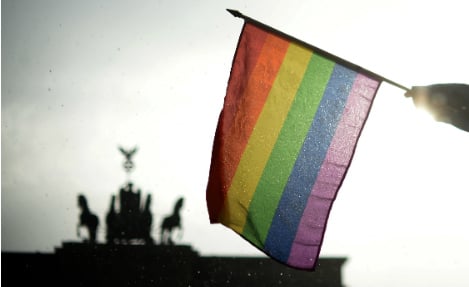Having been together for fourteen years, civil partners Sven Kretschmer and Tim Kretschmer-Schmidt are finally going to get ‘married’, at least in the eyes of the Protestant church.
Although civil partnerships are permitted under the Life Partnership Law of 2001, gay marriage is currently not recognized in Germany.
In 2002, the Protestant church made it possible for gay couples to receive a blessing.
However, the “classical” church marriage service remained a privilege reserved for heterosexual couples only.
Recently though, the Synods in the Rhineland, Hesse-Nassau, and Baden pioneered further change when they all agreed to give same-sex civil partners exactly the same ceremony as heterosexual married couples.
Following in their footsteps, the Synod of the Evangelical Church of Berlin-Brandenburg-Silesian-Upper-Lusatia (EKBO) voted 91 to 10 to grant gay couples equality with heterosexual couples in April this year.
In Protestant churches in Berlin, gay couples are now permitted to get married in church and have their names put on the marriage register along with heterosexual couples.
However, priests who object to gay marriage are not obliged to carry out the marriage ceremony. In this case, the couple is referred to another priest who will marry them.
The change is yet to be accepted nationwide. Gay couples are not given the same rights as heterosexual couples in Protestant churches in Bavaria and Saxony-Anhalt. However, they are allowed to receive a blessing.
The church in Württemberg goes even further and does not even permit gay couples to receive a blessing.
Today marks a “very important step” for the Protestant church
Pastors Justus Münster and Eric Haußmann, who are carrying out the ceremony today, see no reason why gay marriage should not be allowed.
“When the couple came to see me and asked me to marry them […] I obviously said yes,” Münster, who is the EKBO’s representative for emergency pastoral care in Berlin, told the Berliner Zeitung.
“We must no longer take into account any artificially constructed differences in our marriage services – we can now officially marry people who want to be connected and to stand by each other. That is a very important step, a very significant moment,” Haußmann told the Berlin daily.
“The church has gone back to its roots. Two people say that they want to love each other and that they will care for each other. We bless this promise,” he goes on to add.
Catholic church still rejects gay marriage
The Catholic church believes that there is Biblical evidence to suggest that gay marriage cannot be justified. Leviticus 20:13 states, “If a man has sexual relations with a man as one does with a woman, both of them have done what is detestable.”
The Pope re-emphasised the Catholic church’s rejection of gay marriage in a letter entitled “Amoris Laetitia – about familial love” which he presented to the Vatican in April this year.
In addition, he claimed that there is no “fundamental basis” for the equality of civil partnerships with heterosexual marriages in God’s plan.
However, people deserve respect regardless of their sexual orientation, he went on to assert.
Although the official stance of the Catholic church in Germany is that gay marriage should not be carried out in churches, this opinion is not held by all Catholics.
In a survey conducted by YouGov in January this year, 68% of German Catholics said that they would support the legalisation of gay marriage.



 Please whitelist us to continue reading.
Please whitelist us to continue reading.
Member comments